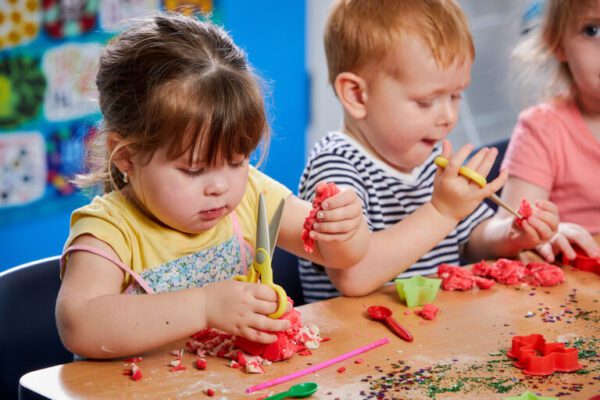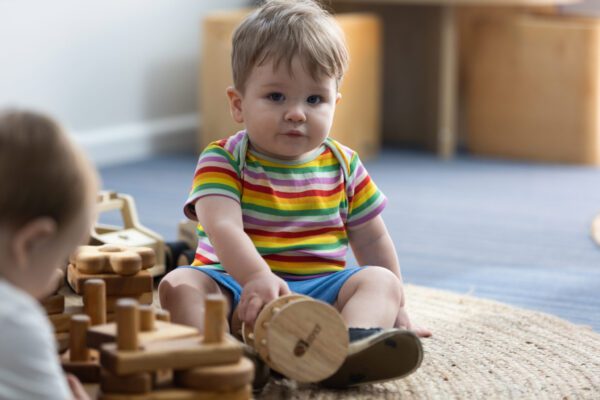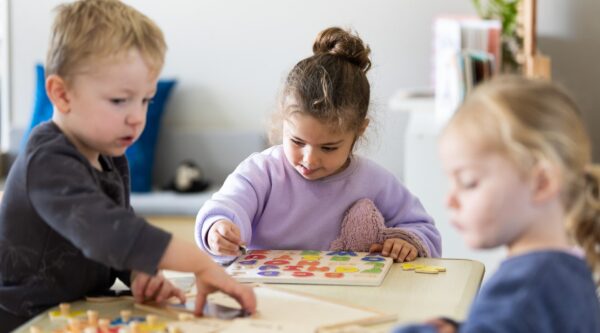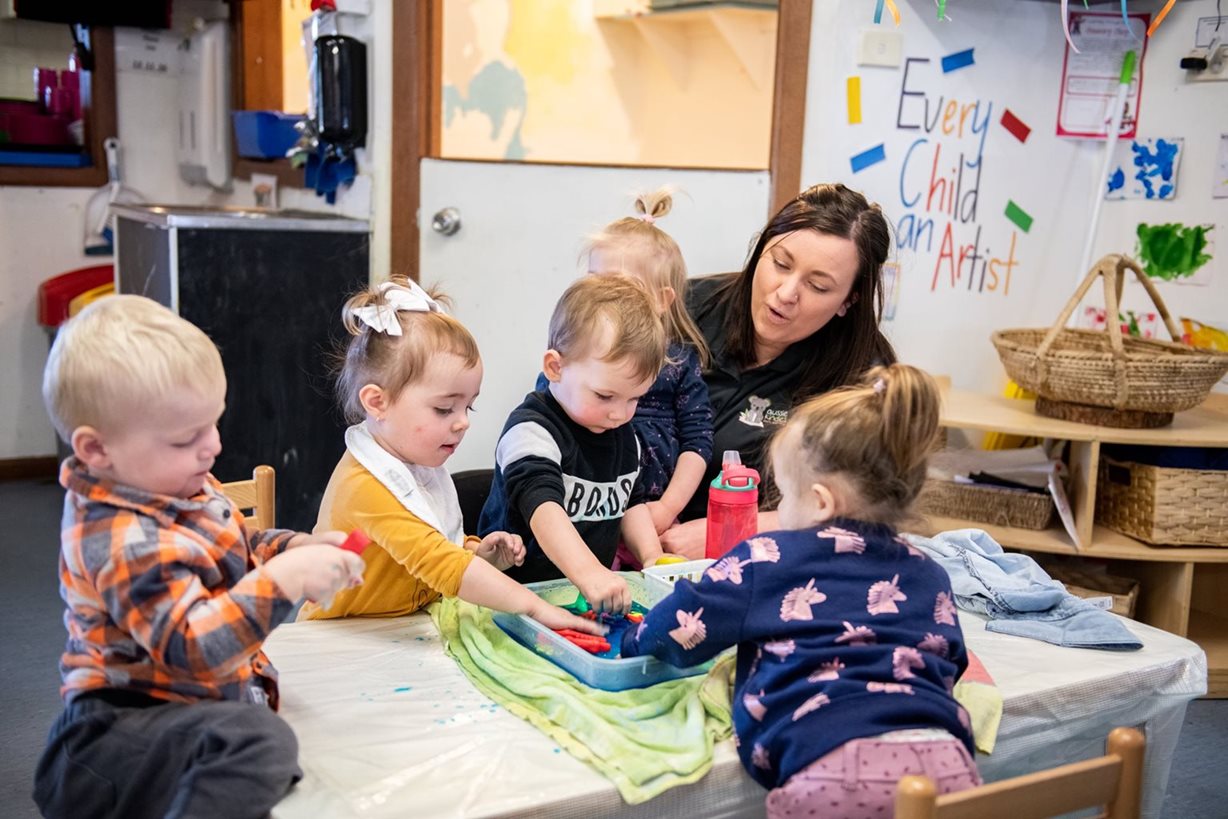
Understanding the Importance of Sensory Play
During the toddler stage, children are like little scientists, eagerly exploring their surroundings and trying to make sense of the world around them. One of the most effective ways they do this is through Sensory Play. Sensory play not only captivates their imagination but also supports cognitive and sensory development while enhancing creativity and problem-solving abilities.
Sensory play is a large part of our Lifelong Learning Curriculum and aligns with the Australian Children’s Education and Care Quality Authorities (ACECQA) Quality Area 1, Educational programs and practice. Quality 1 emphasizes the importance of providing experiences where educators are child-centred, providing stimulating and maximizing opportunities for enhanced and extended learning and development for each child. Sensory play also plays a part in ACECQA Quality Area 3, focusing on supporting children’s physical, emotional, and cognitive well-being; this is why sensory play is vital in our centre’s daily routines. All children can explore various materials, textures, and experiences under the guidance of our trained educators and teachers.


Benefits of Sensory Play
Sensory play is essential for toddlers as it engages multiple senses simultaneously, providing rich opportunities for learning and growth. Through activities like finger painting, water play, and exploring different textures, toddlers develop their fine motor skills and hand-eye coordination. They also learn about cause and effect, practice language skills as they describe their experiences, and enhance their cognitive abilities by experimenting with various materials. By engaging in activities that stimulate their senses, toddlers become more curious, confident, and capable learners. Here are some key benefits:
- Cognitive Development: Sensory play promotes cognitive development by encouraging problem-solving, critical thinking, and creativity. When toddlers explore different materials and textures, they learn to make connections between their actions and the outcomes, laying the foundation for future learning.
- Language Development: Engaging in sensory activities provides toddlers with opportunities to develop their language skills. As they describe the sensations they experience, toddlers expand their vocabulary and improve their ability to communicate with others.
- Social and Emotional Development: Sensory play offers a safe and supportive environment for toddlers to explore their emotions and express themselves. Through sensory experiences, toddlers learn to regulate their emotions, develop empathy towards others, and build positive relationships with their peers.
- Fine and Gross Motor Skills: Activities like pouring, scooping, and squeezing during sensory play help toddlers develop their fine motor skills and hand-eye coordination. Gross motor skills are also enhanced as toddlers move their bodies and explore their environment.
Sensory Play at Aussie Kindies
At Aussie Kindies, and in fact all of our Affinity Education Group owned child care centres, we recognise the importance of sensory play in toddler development. Our experienced educators design engaging sensory activities that stimulate children’s senses and promote learning and exploration.
In our toddler rooms, you’ll find a variety of sensory materials and experiences tailored to your child’s interests and developmental needs. From sensory bins filled with rice or sand to water play stations and messy art activities, we offer opportunities for children to engage in hands-on learning and discovery.
Sarah, Lead Educator at Milestones Caloundra, is passionate about the benefits of sensory play for toddler development. She believes that messy play is not just about getting our hands dirty; it’s about fostering a sense of wonder and discovery in our toddlers.
“Through sensory play, children develop important skills like problem-solving and decision-making, all while having fun and exploring their creativity,” says Sarah. “It’s incredible to see how engaged and excited the children become when they have the freedom to explore and experiment with different materials.”
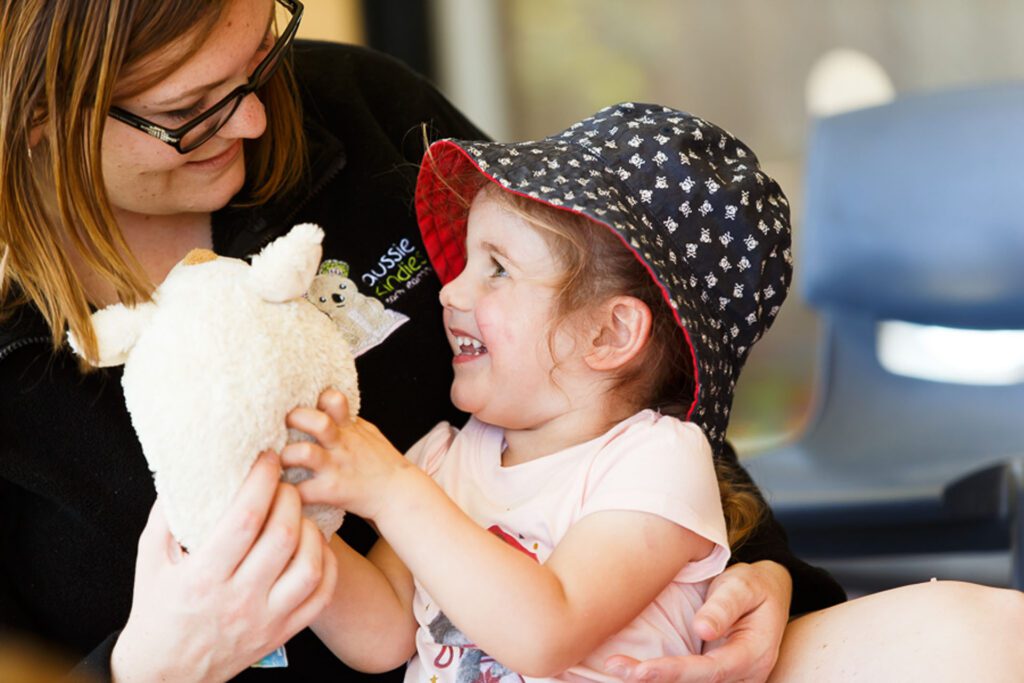

Cognitive and Emotional Development
By engaging in sensory play, toddlers not only develop their fine and gross motor skills but also strengthen their cognitive abilities. As they dig their hands into a bin of rice or experiment with pouring water into different containers, they are learning valuable lessons about volume, texture, and spatial relationships.
Furthermore, sensory play provides a safe and supportive environment for toddlers to explore their emotions and express themselves. Whether they’re feeling excited, frustrated, or curious, sensory activities offer toddlers an outlet to process their feelings and develop essential social and emotional skills.
Sensory play is an integral part of toddler development, offering a wealth of benefits for cognitive, sensory, and emotional growth. All Affinity-owned centres are committed to providing enriching sensory experiences that support your child’s holistic development.
In addition to the enriching sensory experiences, we understand the significance of supporting your child’s social, language, and imaginative development. Toddlers start to become socially aware of their friends around them, so being able to move up with friends is invaluable to support and strengthen their developing friendships and sense of belonging.
As young children (older babies) develop, they start to understand the use of language and communication skills to express themselves, evident through their increasing interest in babbling and mimicking adults’ words. Exposing children to ‘language-rich environments’ is important to support and stimulate their language development to meet their developing needs to share their thoughts and ideas through language. Our Abecedarian Approach in the Early Experiences Curriculum emphasises children’s language development and early socialisation.
Messy play provides opportunities for children to engage in schematic play, which is important for exploring the world around them through repetitive play behaviour. Our Early Experiences Curriculum supports children’s engagement in schematic play, and our educators intentionally observe and extend their learning through this type of play.
Messy play supports children to explore with their senses, touching different textures, smelling scents, etc. This type of play is often related to sensory play, which is widely used by speech therapists to provide focused opportunities around language development. Affinity centres support this play with the Abecedarian Approach in extending vocabulary and sentences, using describing and action words throughout the interaction of the play.
Toddlers’ curiosity is at its peak at this stage; they often enjoy moving around and exploring with their senses by touching, feeling, listening, tasting, and observing their environment. Messy play provides that sensory element where they are given the opportunity to quench the thirst of their curious minds.
With our comprehensive approach to early childhood development, we are dedicated to nurturing every aspect of your child’s growth and ensuring they have a positive and enriching experience at our centre. We invite you to explore the exciting world of sensory play with us and witness firsthand the incredible impact it has on your child’s development.
